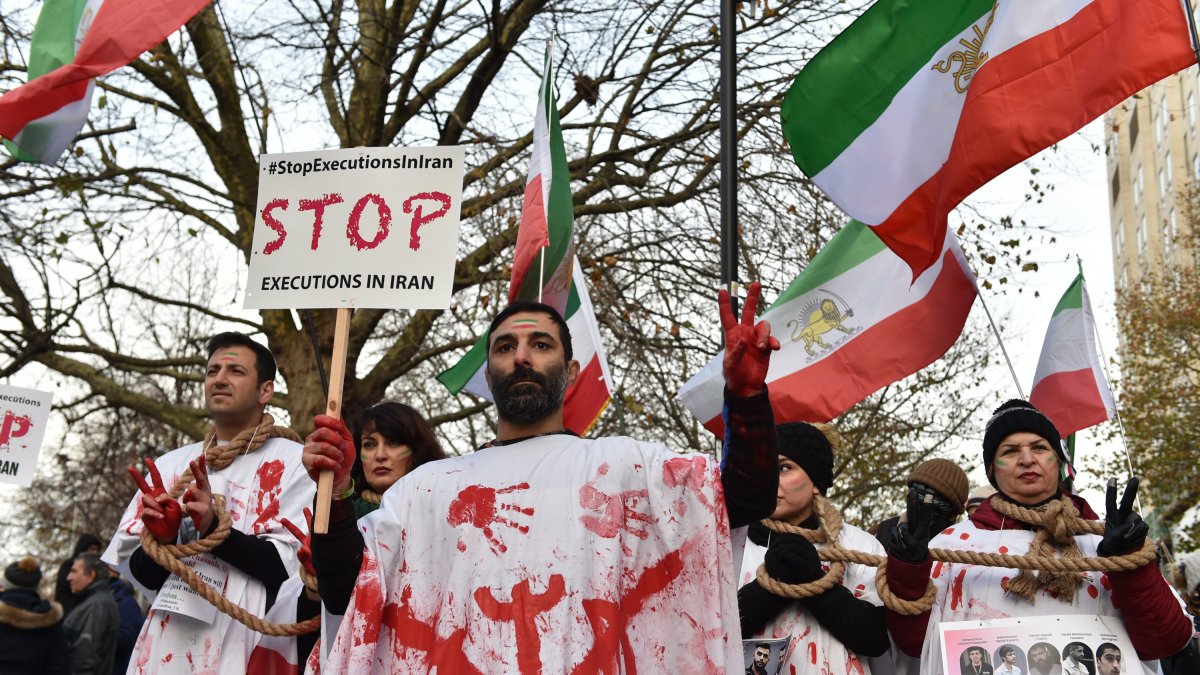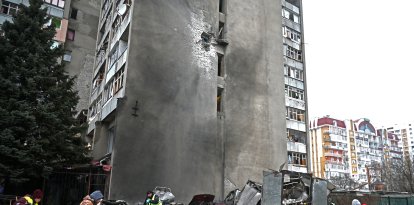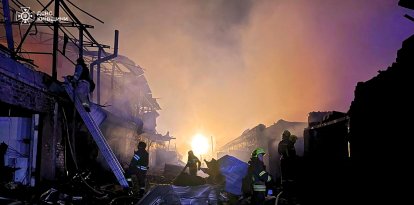Executions around the world reach their highest in eight years, driven by Iran and China
The Iranian regime executed 853 people in 2023, according to Amnesty International. Most for drug-related 'crimes.' China exceeded this number several times over, although by how much is unknown.

Protest in England against executions in Iran.
Last year there were 1,153 judicial executions in the world. An annual increase of 31%. The figure, compiled by Amnesty International, is the highest in nearly a decade, since 2015 when the organization reported 1,634.
This count, however, is a minimum. For every death dictated and recorded by a state, Amnesty recognizes that there are so many others that go unnoticed. Just by adding China, whose exact figure does not exist due to a lack of public records, the number doubles.
How high could it go if you also add the vague North Korea? And Belarus?
While the number of executions has increased, the number of executioners decreased from 20 to 16: "These figures confirm trends of recent years that point to the ever-increasing isolation of retentionist countries."
This shrinking club, with the departure last year of Belarus, Japan, Myanmar and South Sudan, has, however, two undisputed leaders who are not slowing down: China and Iran.
Iran, main promoter of hanging
Under the Islamic penal code, adultery is punishable by penalties ranging from thirty lashes to the death penalty. Ahmad Nikoui got the latter: he was executed in a prison in Alborz province in April last year. His crime, according to Amnesty International: "Having consensual sexual relations with a married woman."
"The fate of the woman is unknown."
Nikoui's case is the only one the organization lists under the label of adultery, although it admits there may be more. It is far from being, however, the only one contrary to international law: 545 people were executed for crimes less serious than an intentional homicide, which is considered the minimum threshold for international law. These include crimes related to drugs, religion and political dissent.
With a total of 853 executions in 2023, the Iranian regime accounted for 74% of executions recorded worldwide (that is, leaving aside those in China, concealed by the state).
An annual increase of 48% due largely to the punishment of drug-related crimes. "Not only may these offences not be punished by death under international human rights law and standards, but also they disproportionately impacted Iran’s most marginalised communities, especially men and women from the oppressed Baluchi ethnic minority," say Amnesty. The organization has been warning for years that the Baluchi ethnic minority is the most affected by these deadly sentences, which are usually carried out by hanging.
This is far from being the only violation of international laws by the regime of Ayatollah Ali Khamenei: executions for crimes committed when individuals were minors, torture to obtain confessions, special courts to sentence to death...
China, the country of a thousand executions
Between lethal injections and firing squads, Xi Jinping's regime has killed more than 1000 people. The largest number of maximum sentences (and by far) in any country.
Amnesty International recognizes, however, the difficulty of collecting information that the government classifies as state secret. Although the NGO always uses a mixture of sources - official figures, sentences, testimonies of convicted persons and their relatives, media reports and other non-governmental organizations - the lack of official documents casts doubt on the final number. It does not, however, prevent Amnesty International from asserting that China carried out "more executions than the rest of the world combined."
China obscures information when it wants to. Official sources and related media publish, from time to time, partial data on executions with the aim of "send a message signaling that neither crime, nor dissent, would be tolerated."
Last May, for example, an official spokesman used the execution of three men convicted of raping elementary and high school girls as a warning to criminals, to minors ("as a reminder for minors to improve their awareness of self-protection"), and to their parents and educators.
Media cases of death sentences for former officers served to show that the authorities were not safe either, according to Amnesty International. Also, probably, as illustrious examples of Xi Jinping's anti-corruption campaign.

























